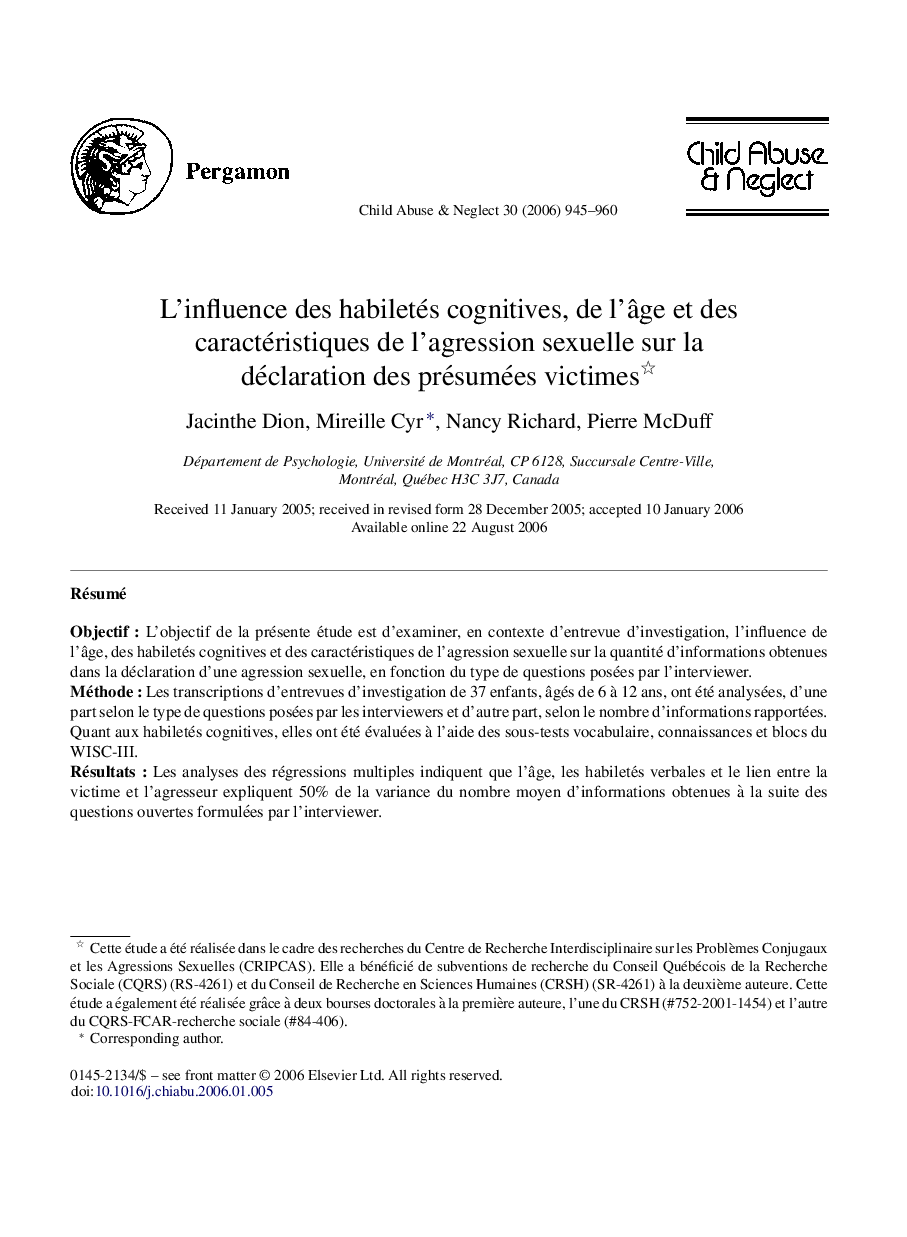| Article ID | Journal | Published Year | Pages | File Type |
|---|---|---|---|---|
| 345653 | Child Abuse & Neglect | 2006 | 16 Pages |
RésuméObjectifL’objectif de la présente étude est d’examiner, en contexte d’entrevue d’investigation, l’influence de l’âge, des habiletés cognitives et des caractéristiques de l’agression sexuelle sur la quantité d’informations obtenues dans la déclaration d’une agression sexuelle, en fonction du type de questions posées par l’interviewer.MéthodeLes transcriptions d’entrevues d’investigation de 37 enfants, âgés de 6 à 12 ans, ont été analysées, d’une part selon le type de questions posées par les interviewers et d’autre part, selon le nombre d’informations rapportées. Quant aux habiletés cognitives, elles ont été évaluées à l’aide des sous-tests vocabulaire, connaissances et blocs du WISC-III.RésultatsLes analyses des régressions multiples indiquent que l’âge, les habiletés verbales et le lien entre la victime et l’agresseur expliquent 50% de la variance du nombre moyen d’informations obtenues à la suite des questions ouvertes formulées par l’interviewer.ConclusionLes résultats de cette étude suggèrent que la quantité d’informations obtenues lors d’une entrevue d’investigation est influencée non seulement par l’âge de l’enfant, mais également par ses aptitudes verbales et son lien avec l’agresseur.
ObjectiveThe goal of the present study was to examine the effects of children's age, cognitive abilities and the characteristics of their sexual abuse experience on the quantity of details revealed about the sexual abuse in an investigative interview as a function of the type of questions asked.Method versionTranscripts of 37 investigative interviews conducted with children between 6 and 12 years of age were analyzed according to the type of interviewer questions used and the quantity of details given by the child. The children's cognitive abilities were measured using the vocabulary, information and block design subtests of the WISC-III.ResultsResults of multiple regression analyses indicate that children's age and verbal abilities as well as their relationship with the perpetrator explain 50% of the variance of the mean number of details obtained from the child following open-ended interviewer questions.ConclusionThe results of this study suggest that the quantity of details obtained during an investigative interview is influenced not only by children's age but also by their verbal skills and the child-perpetrator relationship.
ResumenSpanish language abstract not available at the time of publication.
